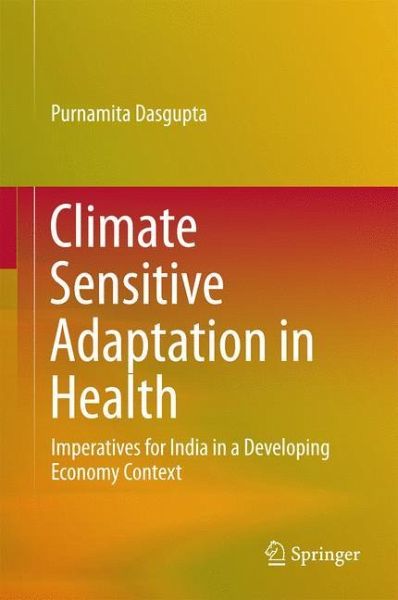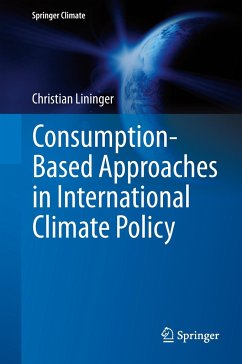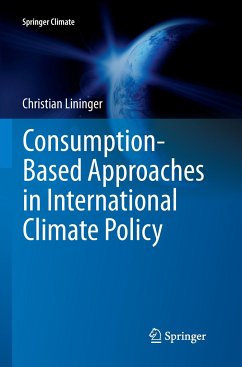
Climate Sensitive Adaptation in Health
Imperatives for India in a Developing Economy Context
Versandkostenfrei!
Versandfertig in 6-10 Tagen
76,99 €
inkl. MwSt.
Weitere Ausgaben:

PAYBACK Punkte
38 °P sammeln!
This book focuses on the risks that climate change poses for the health sector. It discusses the current vulnerabilities to climate-sensitive diseases, the resultant mortality and morbidity in human populations, the projected risks in connection with increasing global warming, and the options for tackling the adverse impacts of climate change. Adapting to climate change so as to effectively address the risks for and adverse impacts on the health sector requires an in-depth understanding of current deficits in health sector preparedness for climate-sensitive illnesses, as well as future plans a...
This book focuses on the risks that climate change poses for the health sector. It discusses the current vulnerabilities to climate-sensitive diseases, the resultant mortality and morbidity in human populations, the projected risks in connection with increasing global warming, and the options for tackling the adverse impacts of climate change. Adapting to climate change so as to effectively address the risks for and adverse impacts on the health sector requires an in-depth understanding of current deficits in health sector preparedness for climate-sensitive illnesses, as well as future plans and programs for increasing adaptive capacity and building resilience.
The book situates climate and health adaptation concerns in the broader context of developing countries, providing insights that can be useful for other countries as well, helping them further their health adaptation efforts. In India, poverty and inadequate access to basic water, health and sanitation services combine with climate-related events to adversely impact health outcomes. Three case studies on the occurrence of heat stress, flooding, and extreme cyclonic events in India are presented along with a critical assessment of the level of preparedness and capacity of healthcare facilities to respond to the threats posed by climate change. The book presents the key challenges faced in reducing the risks posed to the health sector by climatic factors, and highlights the most important opportunities for promoting resilience and adaptation to achieve sustainable development.
Dr. Dasgupta's excellent book reviews the health risks of climate change, outlines an operational framework for health adaptation, and describes the socioeconomic context for adaptation in India. - Kristie L. EbiProfessor, Departments of Global Health, and Environmental and Occupational Health Sciences, University of Washington, USA
This pioneering work contributes to an the understanding of the preparedness in India to manage health risks from such (climate) change on the basis of detailed data analysis, both from large national surveys and contextualized field based surveys.- Kanchan ChopraFormer Director and Professor, Institute of Economic Growth, New Delhi, India
The book situates climate and health adaptation concerns in the broader context of developing countries, providing insights that can be useful for other countries as well, helping them further their health adaptation efforts. In India, poverty and inadequate access to basic water, health and sanitation services combine with climate-related events to adversely impact health outcomes. Three case studies on the occurrence of heat stress, flooding, and extreme cyclonic events in India are presented along with a critical assessment of the level of preparedness and capacity of healthcare facilities to respond to the threats posed by climate change. The book presents the key challenges faced in reducing the risks posed to the health sector by climatic factors, and highlights the most important opportunities for promoting resilience and adaptation to achieve sustainable development.
Dr. Dasgupta's excellent book reviews the health risks of climate change, outlines an operational framework for health adaptation, and describes the socioeconomic context for adaptation in India. - Kristie L. EbiProfessor, Departments of Global Health, and Environmental and Occupational Health Sciences, University of Washington, USA
This pioneering work contributes to an the understanding of the preparedness in India to manage health risks from such (climate) change on the basis of detailed data analysis, both from large national surveys and contextualized field based surveys.- Kanchan ChopraFormer Director and Professor, Institute of Economic Growth, New Delhi, India














